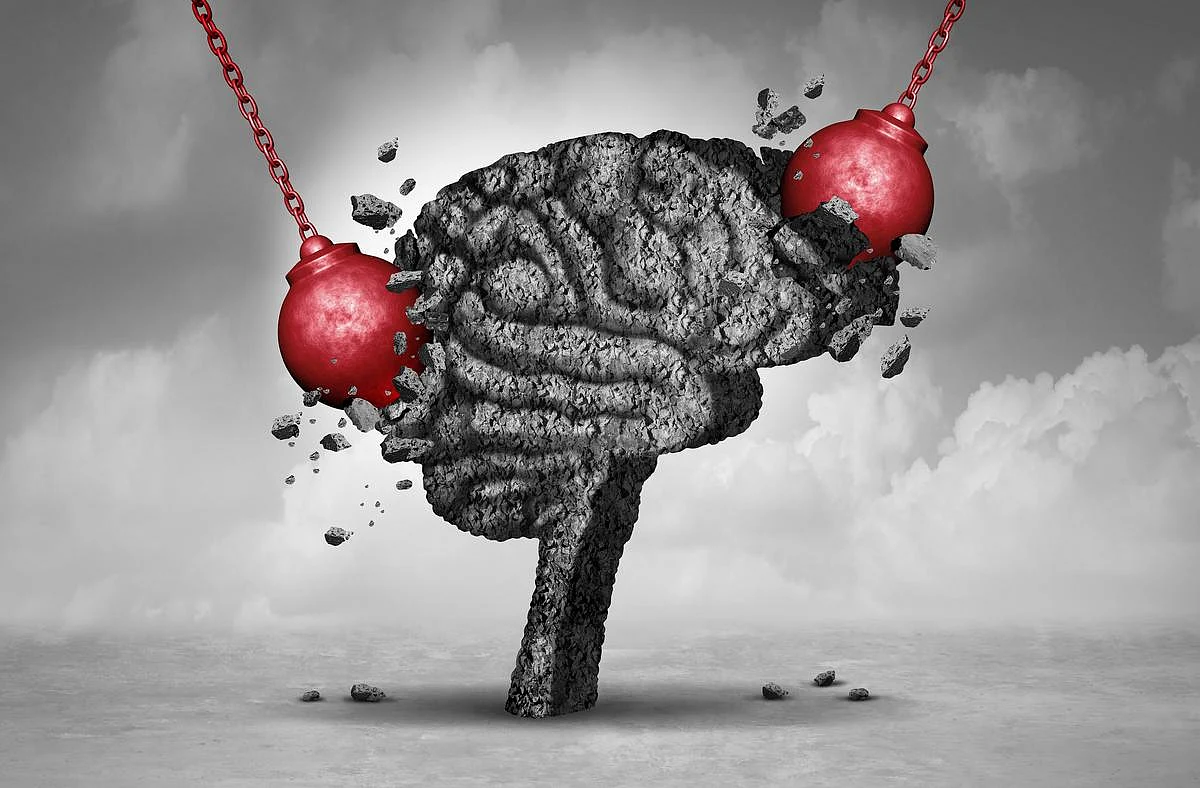Magnesium-Ibogaine May Be Beneficial for Combat Veterans With TBI
THURSDAY, July 31, 2025 -- Treatment of traumatic brain injury with magnesium-ibogaine reduces spatiotemporal complexity of brain activity and slows cortical oscillations in the brain at rest, according to a study published online July 24 in Nature Mental Health.
Jennifer I. Lissemore, Ph.D., from the Stanford University Medical Center in California, and colleagues performed resting-state electroencephalography before, 3.5 days after, and one month after magnesium-ibogaine therapy in an observational, open-label study of 30 combat veterans to examine the effects on human cortical oscillations and complexity.
The researchers found that slower oscillations (theta-alpha) increased in power after treatment, and power at higher-frequencies (beta-gamma) decreased. Accordingly, there was an increase seen in the theta/beta ratio after treatment, which correlated with improvement in cognition inhibition. After treatment, peak alpha frequency and neural complexity were lower, which persisted at one-month follow-up. Correlations were seen for these neurophysiological markers with improved executive function, posttraumatic stress disorder, and anxiety after ibogaine.
"No other drug has ever been able to alleviate the functional and neuropsychiatric symptoms of traumatic brain injury," coauthor Nolan Williams, M.D., also from Stanford University, said in a statement. "The results are dramatic, and we intend to study this compound further."
One author disclosed ties to Alto Neuroscience and Flow Neuroscience; one author is a named inventor on Stanford-owned intellectual property relating to magnesium-ibogaine.
Abstract/Full Text (subscription or payment may be required)
Disclaimer: Statistical data in medical articles provide general trends and do not pertain to individuals. Individual factors can vary greatly. Always seek personalized medical advice for individual healthcare decisions.
© 2025 HealthDay. All rights reserved.
Read this next
AAP: Pediatric Golf Cart-Related Injuries Mainly Caused by Falls
TUESDAY, Sept. 30, 2025 -- Pediatric/young adult golf cart-related injuries are mainly caused by falls from the golf cart, according to a study presented at the annual meeting of...
Repetitive Head Impact Exposure Tied to Disruption at Depths of Sulci
TUESDAY, Sept. 23, 2025 -- Higher repetitive head impact (RHI) exposure is associated with microstructural disruption at the depths of sulci, according to a study published online...
Moderate-to-Severe TBI Linked to Malignant Brain Tumor Risk
FRIDAY, Sept. 5, 2025 -- A history of moderate-to-severe traumatic brain injury (TBI) is associated with an increased risk for developing malignant brain tumors, according to a...
More news resources
- FDA Medwatch Drug Alerts
- Daily MedNews
- News for Health Professionals
- New Drug Approvals
- New Drug Applications
- Drug Shortages
- Clinical Trial Results
- Generic Drug Approvals
Subscribe to our newsletter
Whatever your topic of interest, subscribe to our newsletters to get the best of Drugs.com in your inbox.


